Common seasonings are essential ingredients that enhance flavor in cooking. Here are the top 10 most common seasonings used worldwide, along with their uses, flavor profiles, and tips for optimal use:
- Salt: The king of all seasonings. Enhances flavor, preserves food, and balances sweetness. Varieties include sea salt, kosher salt, and Himalayan pink salt.
- Pepper (Black): Adds subtle heat and complexity. Best when freshly ground for maximum aroma.
- Cumin: Earthy, warm, and slightly bitter. A staple in Indian, Middle Eastern, and Mexican cuisines.
- Paprika: Comes in sweet, smoked, and hot varieties. Adds vibrant color and mild heat.
- Oregano: Robust and aromatic, commonly used in Mediterranean dishes, especially Italian sauces.
- Garlic Powder: Offers concentrated garlicky flavor without the hassle of chopping fresh cloves.
- Onion Powder: Versatile and mellow, it blends well into almost any dish.
- Basil: Sweet, slightly peppery, and a must-have in Italian cooking—especially with tomatoes.
- Thyme: Subtle yet savory, perfect for roasted meats, soups, and stews.
- Chili Powder: Not a single spice—it's a blend usually including cumin, garlic powder, oregano, and cayenne.
| Seasoning | Flavor Profile | Main Use | Best With | Heat Level (1–5) |
|---|---|---|---|---|
| Salt | Savory, briny | Enhance all flavors | All dishes | 0 |
| Black Pepper | Sharp, spicy | Finishing touch | Eggs, pasta, salads | 2 |
| Cumin | Earthy, nutty | Mexican, Indian dishes | Beans, chili, curry | 1 |
| Paprika | Sweet, smoky | Color and subtle heat | Paella, deviled eggs | 1–3 |
| Oregano | Herby, bold | Italian and Greek cuisine | Tomatoes, pizza, lamb | 0 |
| Garlic Powder | Pungent, rich | Even flavor distribution | Rubs, soups, sauces | 0 |
| Onion Powder | Umami, savory | Base layer flavor | Meats, dips, marinades | 0 |
| Basil | Fragrant, minty | Raw or lightly cooked | Pesto, tomato dishes | 0 |
| Thyme | Woody, lemony | Slow-cooked dishes | Roasted chicken, stews | 0 |
| Chili Powder | Smoky, complex | Taco meat, chili | Beans, corn, beef | 2–4 |
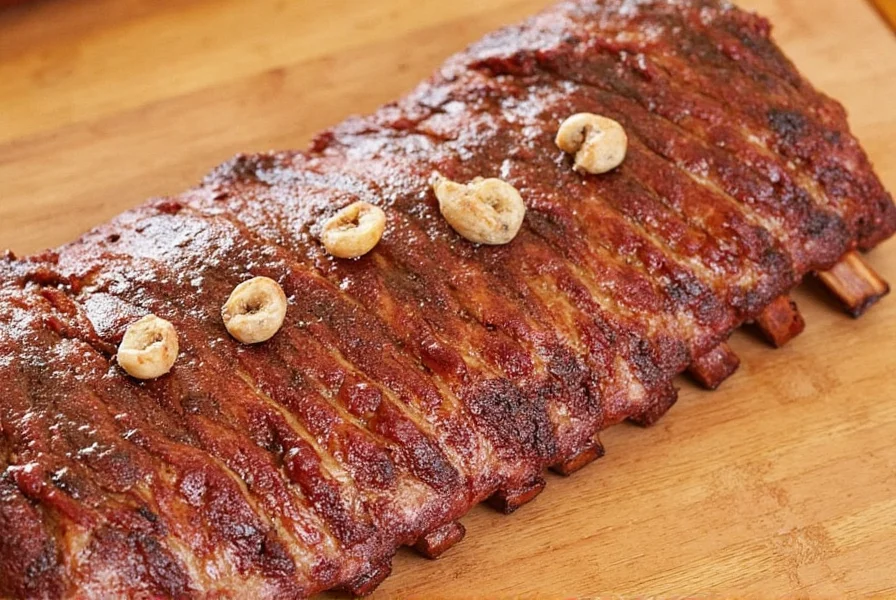
Pro Tips for Using Common Seasonings
Using common seasonings is more art than science. Here are some tried-and-true tips to elevate your game:
- Taste as You Go: Don't be afraid to taste after each addition—especially when working with potent seasonings like salt or cayenne.
- Layer Flavors: Start with base aromatics (like onions and garlic), add mid-stage herbs (like thyme or oregano), and finish with fresh herbs or pepper for brightness.
- Dry vs. Fresh: Fresh herbs have a lighter, brighter flavor. Dry herbs are more concentrated, so use sparingly—about ⅓ the amount of fresh.
- Toast Your Spices: Toasting cumin, coriander, or fennel seeds in a dry pan can unlock deeper flavors.
- Store Smart: Keep spices in airtight containers away from light and heat. Whole spices last longer than ground ones.
- Don't Forget Acid: Sometimes a dash of vinegar or citrus juice can make spices sing even louder.
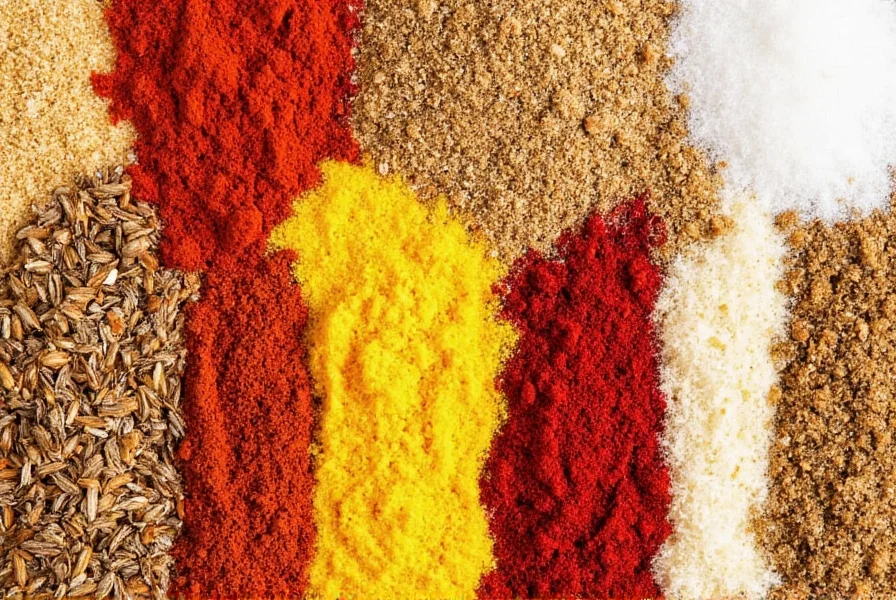
Buying Guide: What to Look For
If you're new to the spice aisle or just want to upgrade your collection, here's what to look for when shopping for common seasonings:
Quality Matters
- Whole vs. Ground: Whole spices (like peppercorns or cumin seeds) retain freshness longer. Grind them yourself for the best flavor.
- Organic Options: Organic seasonings avoid synthetic pesticides and additives. Great if you prefer clean eating.
- Single Origin: Some brands highlight where the spice was grown (e.g., Hungarian paprika, Turkish oregano). These often offer superior quality and flavor.
- Shelf Life: Ground spices last about 6 months to a year; whole spices can last up to three years.
Top Picks for Must-Have Seasonings
| Product | Description | Features | Target Audience | Occasions |
|---|---|---|---|---|
| McCormick Culinary Salt | Pure and consistent, ideal for professional results at home. | No additives, fine texture | Home cooks, chefs | Daily cooking, baking |
| The Spice Lab Black Peppercorns | Robust, fragrant, and perfect for grinding fresh. | Whole black peppercorns, organic | Anyone who loves fresh-ground pepper | Finishing steaks, pastas |
| Simply Organic Cumin | Rich, earthy aroma, great for global dishes. | Organic, certified USDA | Vegetarian cooks, health-conscious folks | Curries, tacos, lentils |
| La Flor Smoked Paprika | Authentic Spanish smoked paprika with deep flavor. | Natural wood-smoked, no preservatives | Grillers, paella fans | Charcuterie, grilled veggies |
| Frontier Co-op Garlic Powder | Concentrated flavor, no clumping. | Non-GMO, bulk-friendly | Busy cooks, recipe followers | Everyday cooking, rubs |
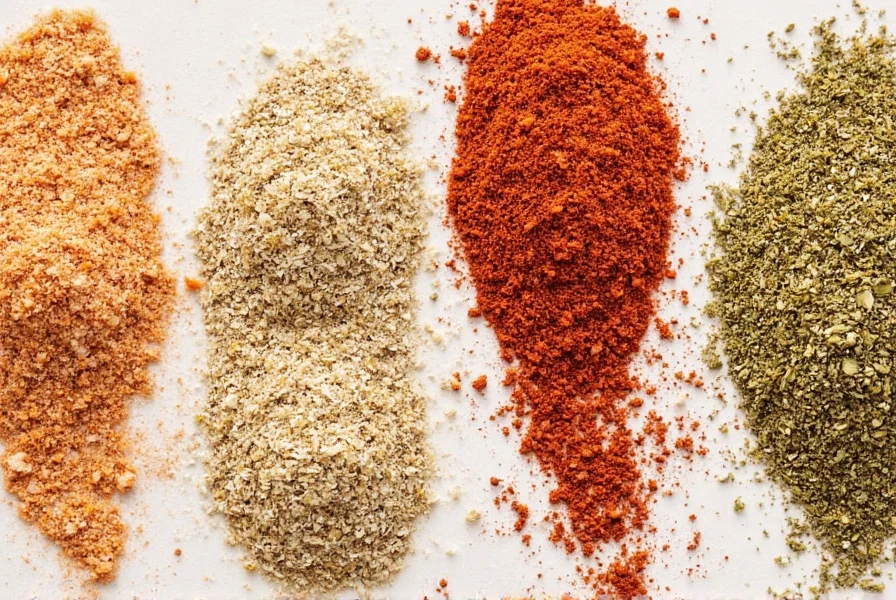
Flavor Pairing Magic: Mixing & Matching Seasonings
Want to level up your seasoning game? Try pairing different seasonings together to create flavor harmony. Here are some classic combinations that work like magic:
- Cajun Heat: Paprika + Cayenne + Garlic Powder + Onion Powder + Thyme = Southern charm in every bite.
- Italian Zest: Oregano + Basil + Garlic Powder + Crushed Red Pepper = Perfect for pasta sauces and bread dips.
- Tex-Mex Blend: Chili Powder + Cumin + Smoked Paprika + Lime Zest = Ideal for tacos, enchiladas, and fajitas.
- Mediterranean Mix: Oregano + Thyme + Lemon Zest + Crushed Fennel Seeds = Fantastic for grilled vegetables and fish.
- Umami Bomb: Garlic Powder + Onion Powder + Mushroom Powder + Black Pepper = A vegetarian's secret weapon for rich flavor.
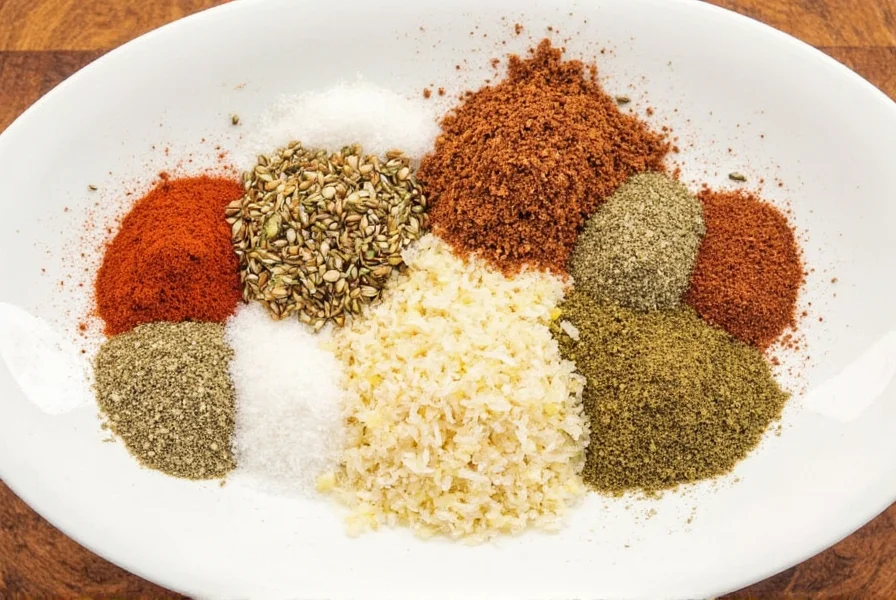
Final Thoughts
Seasonings are far more than just "stuff in the cupboard." They are the soul of our meals, capable of transforming the mundane into the extraordinary. With the right balance, knowledge, and experimentation, anyone can master the art of using common seasonings to their fullest potential.
Remember: don't be afraid to tweak, try, and test. Every pinch of salt or sprinkle of paprika brings you one step closer to flavor heaven. So go ahead—open that spice drawer and start creating your next culinary masterpiece!
Frequently Asked Questions
What are the 5 essential seasonings every kitchen should have?
Based on our guide, the 5 most essential seasonings are salt, black pepper, garlic powder, onion powder, and cumin. These form the foundation of flavor in countless dishes across various cuisines. Salt enhances all flavors, pepper adds complexity, garlic and onion powders provide consistent base flavors, and cumin brings earthy warmth to many global dishes.
How can I tell if my spices have gone bad?
Spices don't technically "go bad" from a food safety perspective, but they lose potency over time. Signs your spices may be past their prime include: faded color, weak aroma (if you can't smell them strongly when you open the container), and lack of flavor impact in your dishes. Ground spices typically last 6-12 months, while whole spices can remain potent for 2-3 years when stored properly in airtight containers away from light and heat.
What's the difference between herbs and spices?
Herbs are the leafy parts of plants (like basil, oregano, and thyme) that typically grow in temperate climates. Spices come from other parts of the plant - seeds (cumin, mustard), roots (ginger, turmeric), bark (cinnamon), or flower buds (cloves). Generally, herbs have a more delicate flavor and are often used fresh, while spices have a stronger, more concentrated flavor and are typically used dried.
Can I substitute fresh herbs for dried ones in recipes?
Yes, but with important adjustments. As mentioned in our "Pro Tips" section, dried herbs are more concentrated than fresh. The general rule is to use one-third the amount of dried herbs compared to fresh. So if a recipe calls for 1 tablespoon of fresh basil, use 1 teaspoon of dried basil instead. Fresh herbs are best added at the end of cooking for maximum flavor, while dried herbs benefit from longer cooking times to release their full flavor.
How should I store my spices to keep them fresh longer?
Proper storage is crucial for maintaining spice quality. Store spices in airtight containers away from direct light, heat, and moisture - the pantry is ideal, not above the stove. Whole spices last significantly longer than ground ones (up to 3 years vs 6-12 months). Avoid storing spices in the refrigerator unless specified (like for some chili powders), as moisture can cause clumping and flavor loss. Always use dry utensils when measuring to prevent moisture contamination.
What's the difference between seasonings, spices, and herbs?
While often used interchangeably, there are subtle distinctions. "Seasonings" is the broadest term, encompassing anything added to food to enhance flavor - including salts, spices, herbs, and blends. "Spices" specifically refer to seasonings derived from seeds, roots, bark, or flower parts of plants (like cumin, cinnamon, cloves). "Herbs" come from the leafy parts of plants (like basil, thyme, oregano). Some items like garlic powder and onion powder are technically vegetable derivatives but function as seasonings in cooking.

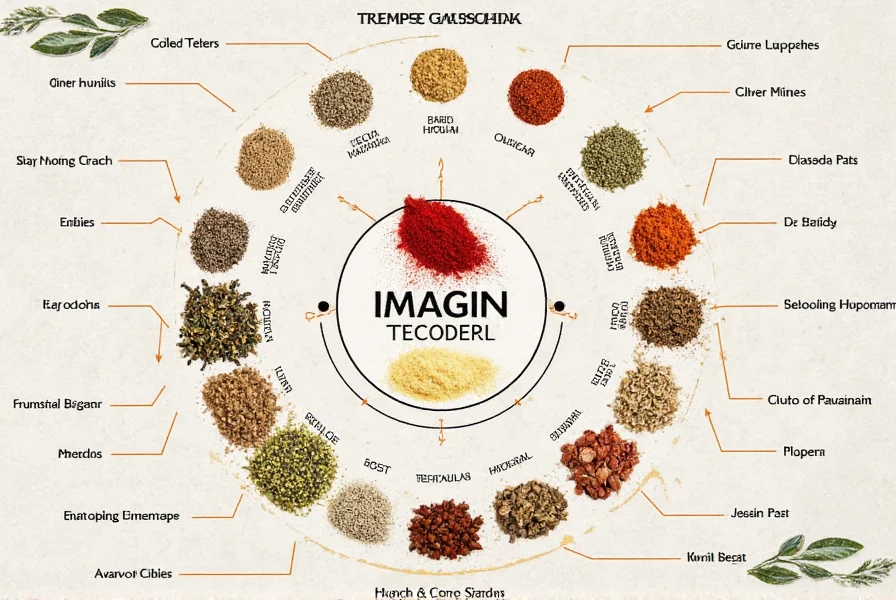









 浙公网安备
33010002000092号
浙公网安备
33010002000092号 浙B2-20120091-4
浙B2-20120091-4